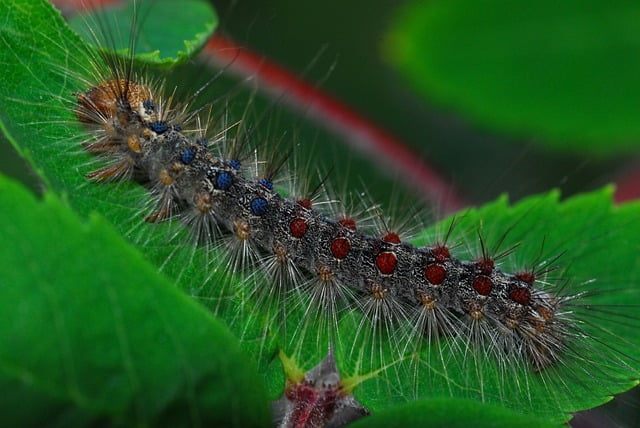in Rhode Island, there are a lot of different pests that love our trees. We are going to look at some of the most common Rhode Island tree pests that we have to deal with.
Common Rhode Island Tree Pests
Aphids
There are a lot of different aphid types, and they affect many deciduous shrubs and trees. They cause deformed leaves, and it might make defoliation to happen when you have aphids.
Bagworms
These insects target pine, spruce, arborvitae, and juniper, along with many other kinds of evergreen species. It also can attack sycamore, honey locust, and black locust.
Gypsy Moths
These caterpillars are known as exfoliators since they stripe plants and trees of leaves. They prefer feeding on the hardwood trees, and the tree can ultimately die if it’s not taken care of.
Hemlock Scale
This pest affects fir, certain spruces, and of course hemlock. It causes needles to yellow, and they will drop eventually if you don’t have your tree treated. Controlling the pests will succeed and it usually takes place during the spring season or the fall.
Lace Bugs
They usually target evergreen, deciduous, and ornamental shrubs and trees. They often will be undetected until the plants that they are infesting have severe damage to them.
Lanternflies
This invasive species came from areas in India, China and Vietnam. They use special mouth parts for penetrating the exterior of trees and sucking out the tree’s sap. This makes the plant weaker and vulnerable to harsher conditions in the winter.
Mites
There are a few kinds of spider mites and mites that affect lots of shrubs and trees. They can affect some of the deciduous trees like honey locusts as well as spruce, hemlock, fir, and arborvitae. When the timing is right, control measures are successful. You need a special product.
These are some of the common Rhode Island tree pests. If you have any of these, it’s best to have someone come and look at your trees and make a plan of attack to fix the problem. We’re glad to help you with your gardening problems. Contact us here. We are also on Facebook.


